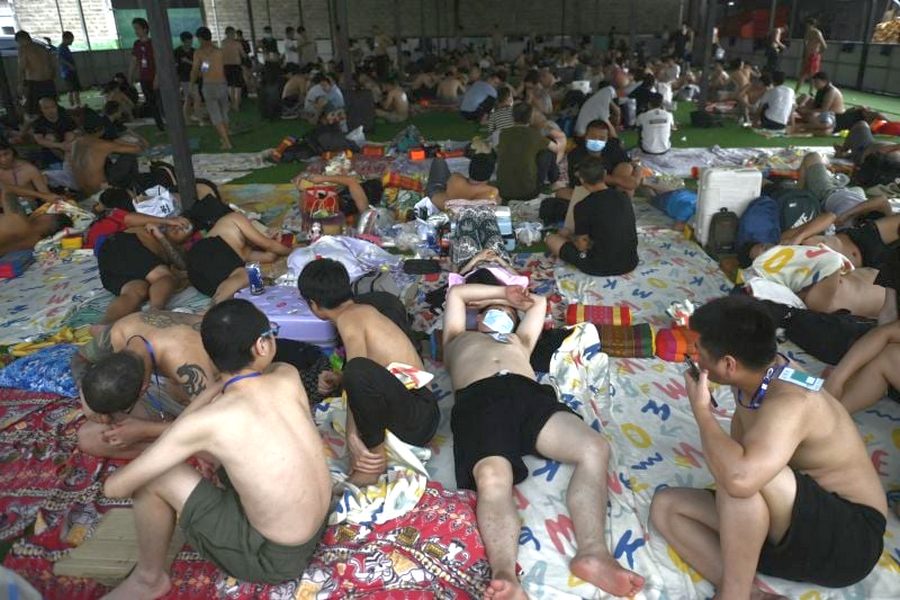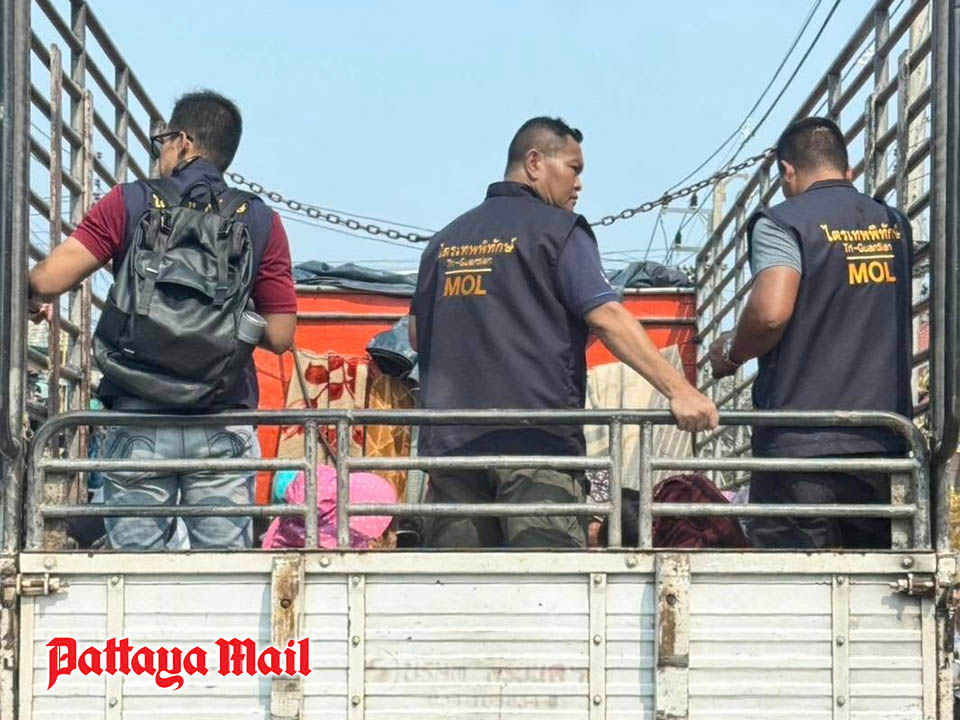
PATTAYA, Thailand – The arrest in Pattaya earlier this week of 52 Myanmar nationals without work authorization papers highlights yet again the acute labor crunch. Pattaya employers cannot fill all the jobs with Thais alone and need many tens of thousands of guest workers from neighboring countries and Myanmar in particular.
The main gaps currently are in the hotel and food industries as Pattaya prepares for a record-breaking Songkran, but the Confederation of Thai Trade and Industry also points of shortages in the construction sector as the building boom continues. According to the real estate research center AREA, the Chonburi housing market is worth more than any other province in Thailand.
But Myanmar nationals have their stern critics in Pattaya and elsewhere. Khaosod reports that xenophobia and anti-Burmese sentiment is spreading in Thailand through social media. On Facebook, Paiboon Arunthanawanich claims that the medical budget has to be shared with aliens and that Myanmars are taking away Thai jobs.
Other Facebook critics complain that Thai budgets should be spent only on Thai citizens and write enthusiastically about president Trump’s immigration policies in USA. But, as Khaosod stresses, these sentiments have lost sight of the fact that low-paying manual jobs are no longer attractive to Thais whose actual unemployment rate is under one percent, mostly graduates looking for their first job.

There are approximately four million Myanmars currently in Thailand with about a quarter domiciled throughout Chonburi province. The majority, perhaps two thirds, are illegal entrants who have crossed via rivers and woods along a border too long to police effectively. The Burmese military junta has all but banned its citizenry from leaving the country legally and commonly enlists any sent-back, repatriated males in the army which is fighting an insurrection in half of Myanmar. Thailand has deported across the border several thousands already in 2025.
Thai authorities look both ways at once. On the one hand, they allow some illegal workers to remain here provided they can show a Myanmar birth certificate or ID card and can find a Thai employer sponsor. On the other, they acknowledge that economic ties between the two countries are strong with huge Thai investment in the Myanmar oil and gas sector and close collaboration between the five Thai national banks and their opposite numbers beyond the border.
Next month the junta leader senior general Min Aung Hlaing will be invited to his first ASEAN conference since the 2021 Myanmar coup, to be held significantly in Bangkok. He will be warmly welcomed by Thai army chiefs with whom he has a warm relationship. Meanwhile, the Thai population declines year by year and Thai children are fast becoming a scarce commodity. The answer is for Thailand, a nation of immigrants, to welcome its neighbors and make them feel at home. The reality is that the Thai government will likely continue to pursue both the carrot and the stick in what many economists see as a delusionary compromise.










